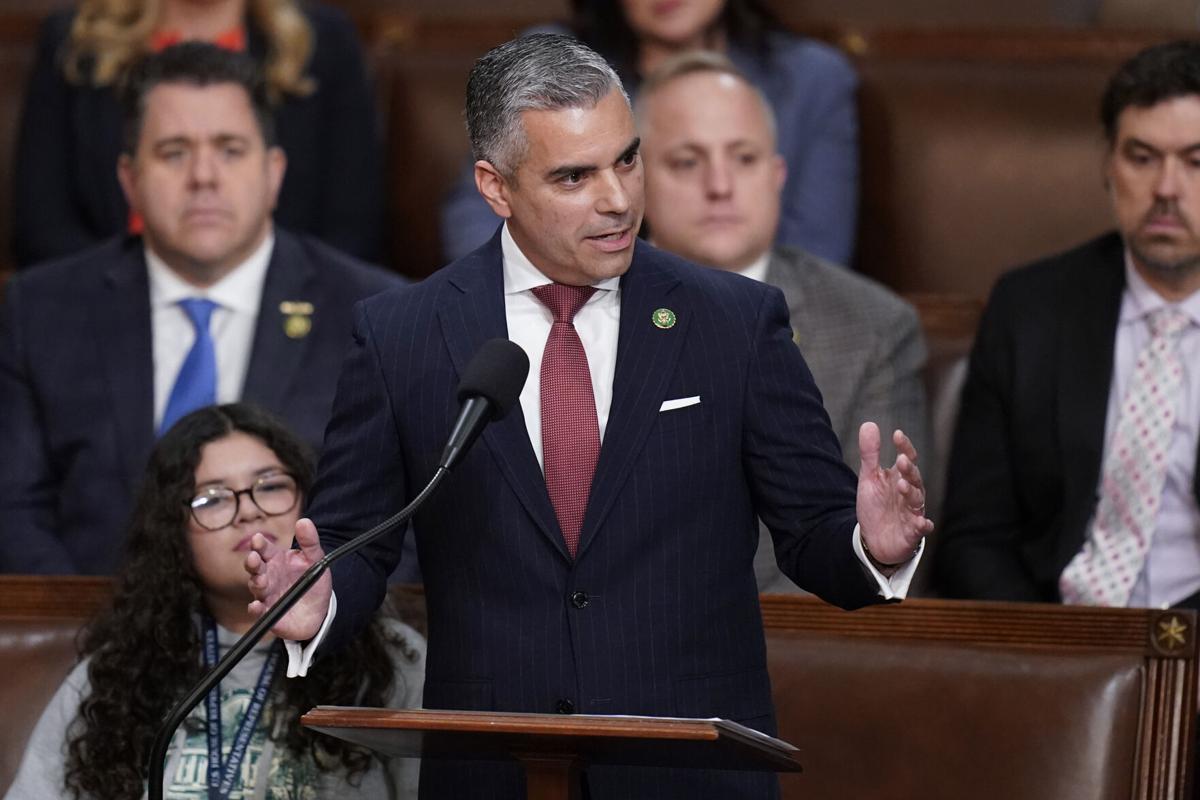Rep. Juan Ciscomani has always struck me as steady and responsible.
He says he still is, and what he’s doing now shows that.
I’m not seeing it.
Ciscomani, the freshman Republican who represents much of the Tucson area as well as southeastern Arizona in the U.S. House, has gone along with the GOP plan to use the threat of debt default as a political lever. They want to force Democrats and President Joe Biden to accept spending cuts, or else.
Or else what? Economic catastrophe. We would all suffer. There would be global impacts.
Now, Ciscomani insists that he would never support a default.
“We need to raise the debt ceiling limit, and we will do that,” he told me Tuesday. “And as we do that, it’s an opportunity to look at our spending, and limit where we can.”
It isn’t the first time the debt ceiling has been used as leverage. This occasional drama goes back at least to 2006 when George W. Bush was president, and Democrats used the debt ceiling as leverage to get concessions. Since then, it’s been a Republican tactic, not one that GOP congressmen use against Republican presidents though.
Spending, it seems, is only a crisis worthy of the threat of default when Democrats are in the White House.
When Donald Trump was president, Congress raised the debt limit three times, two of those times when Republicans were in control. Spending cuts were never a condition.
April 26, Ciscomani voted in favor of a bill called the Limit, Save, Grow Act that is the Republicans framework for cutting spending and raising the debt limit, although the debt limit would have to be revisited by March 31, 2024. As a condition for raising the debt limit, it would:
Require federal spending to be capped at $1.47 trillion in fiscal year 2024
Limit spending increases to just 1 % total in the subsequent fiscal years
Stop Biden’s student-loan relief program, which forgives $10,000 to $20,000 in debt per person
Rescind increased spending on the IRS — a change that would actually raise the deficit by $120 billion, according to the Congressional Budget Office.
Since the plan is so short on details and open to interpretation, Democrats have taken the opportunity to interpret it for voters.
They’ve labeled it the Default on America Act and alleged that it would threaten medical care for veterans, worsen wait times for Social Security and Medicare decisions, deny treatment for opioid addicts and make other drastic changes.
A poll by the Democratic group House Majority Forward put a recent question in a push poll this way:
“Representative Ciscomani voted for a bill that would cut Medicaid, ending care for 21 million who count on it, especially disabled kids and seniors in nursing homes. Do you strongly agree, somewhat agree, somewhat disagree or strongly disagree with this bill?”
This is probably an unfair reading of the bill, as it doesn’t expressly do this at all. But really it’s pointless to get bogged down in the details.
The point is that nobody should use the threat of defaulting on our debt and crashing the economy as leverage to win a political battle, even one over spending. These are, after all, debts we’ve already accrued.
We should move past the era of debt-ceiling drama and simply pay our bills, as we did for decades.
Now, Ciscomani says that the bill is part of a negotiation. It’s the Republicans giving the Democrats something to respond to.
“We laid out a plan. Now it’s up to the president to negotiate,” he said.
But this is the wrong context, in my view. Biden, too, has put out a plan — his proposed 2024 budget. It cuts $3 trillion from the deficit, cumulatively, over the next 10 years.
That compares to a possible $4.8 trillion savings over 10 years in the Republicans’ bill.
This sounds like grounds for negotiation — in budget talks, not a situation where the country is being held hostage and threatened with economic collapse.
Maybe that would be justified if we were in a specific emergency. I asked Ciscomani what the emergency is at this moment that required using this leverage. He pointed to the fact that the national debt is almost $32 trillion and said if we don’t start reducing spending now, drastic cuts will be necessary in just a few years.
“It’s our responsibility to make these decisions now,” he said. “Quite frankly, we’re late.”
While the total national debt is growing and needs to be dealt with, our deficit is shrinking. The annual deficit rose to $3.1 trillion in 2020, Trump’s last year and the opening year of the pandemic, but was down to $1.4 trillion last year and appears to be dropping further.
Ciscomani’s use of the debt limit as a lever could come back to bite him in next year’s election, his first re-election effort. Democrat Kirsten Engel, who he defeated in the 2020 election, is watching closely.
“It is fundamentally irresponsible to threaten to tank the economy in order to get your way in budget negotiations,” she told me Tuesday. “It is the responsibility of Congress to work out a budget. Part of that process is also tackling a deficit.”
That’s the steady, responsible way to proceed. Have a budget negotiation — don’t use threats of disaster to get your way.




